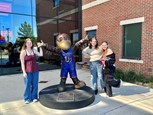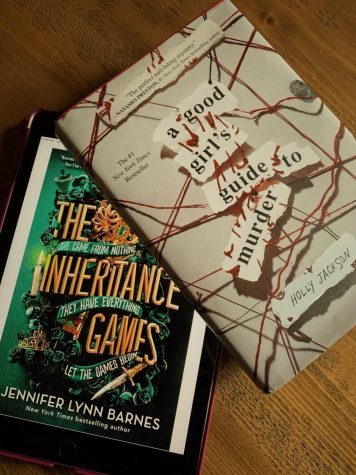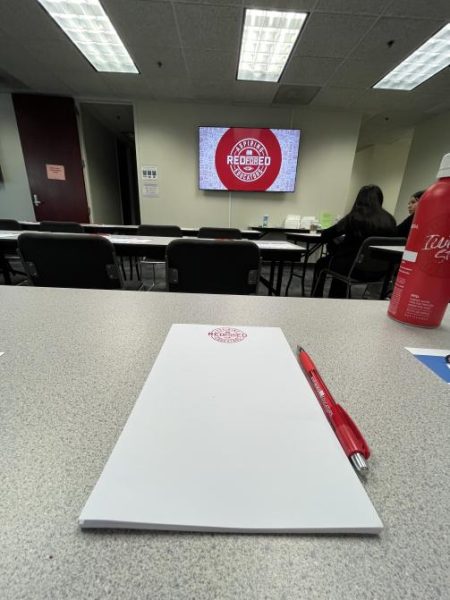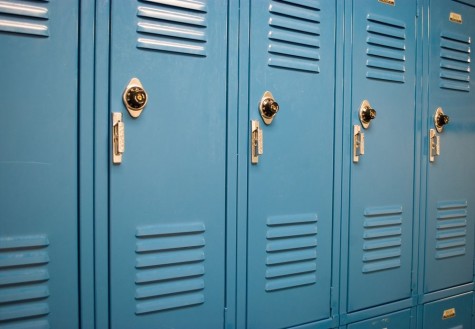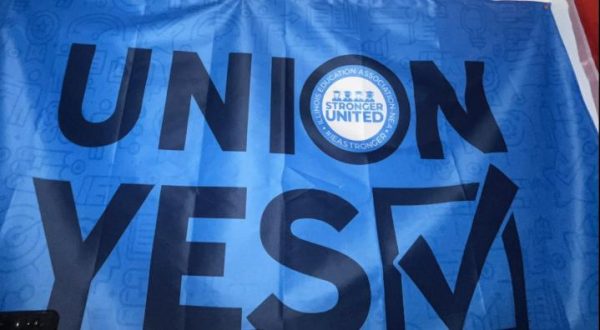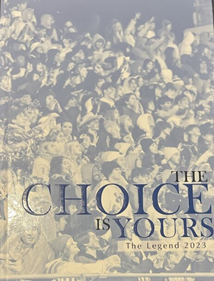What Makes Community Funny?
December 2, 2022
What Makes Community Funny?
If you’re anything like me, you might be balancing difficult classes, a social life, extracurriculars, work, and more daily. So, if you’re anything like me, you don’t watch too much TV. But when you do, you might try to pick something more light-hearted or funny to watch- no reason to stress about things that aren’t even real, right? But what makes a TV show funny? What makes anything funny? Obviously, comedy and TV, like all art, are subjective. But that doesn’t stop us from wondering why we laugh at what we do. I find this especially true for Community by Dan Harmon.
Released in 2009 and running until 2015, Community is a comedy featuring an ensemble cast made up of talent such as Danny Pudi, Alison Brie, Ken Jeong, and even Donald Glover-better known as rapper Childish Gambino. Despite its popularity today, the show didn’t gain too much traction early in its run. When comparing it to other sitcoms released in the same year, it’s easy to see why. For example, Parks and Recreation and Modern Family, though both hilarious, get nowhere near as creative and satirical as Community does in their time on the air. For example, the third episode of the first season, “Introduction to Film” is a Dead Poet’s Society parody. In it, one of the main characters, Jeff Winger, signs up for a class with a ‘Carpe Diem’ loving teacher, thinking it’ll be an easy A. It ends up giving him a tough time as he spends the whole afternoon trying to prove to his off-brand Robin Williams teacher that he has ‘seized the day.’ The subplot of this episode features another character, Abed Nadir, following Jeff and their friend Britta around with a camera all day as he creates a movie for a film class Britta signed him up for to help him ‘follow his dreams’ instead of taking classes to run his father’s falafel shop. These premises are dumb and watching them play out is even dumber, but they’re forgiven because of the setting. Funnily enough, Community takes place at a community college. Community colleges, unfortunately, are undeservingly looked down upon by many. However, the show uses this underestimation to its advantage. Because it’s set in a place people already don’t take very seriously, the show can get away with executing concepts that can get as interesting, strange, and stupid as they want. The show manages to keep its grip on reality and keep the viewer intrigued instead of overwhelmed, even through the weirdest concepts-like an all-campus paintball fight. (Season 1, Episode 23- “Modern Warfare”). This serves to ensure that as the show got stranger (and it did), it got better too. I can’t imagine the cast of Parks and Recreation running around their government buildings with paintball guns for no reason, but those random reoccurring paintball episodes every season are some of Community’s funniest and most inventive.
Ok, so we’ve gathered that setting can contribute to making a TV show funny, and it helps Community stand out, but that can’t be the only thing. Even though I appreciate the setting, it wasn’t what I ended an episode thinking about. What else is there? Well, asking fellow Griffin, Senior Niyam Nielsen, I found that the way characters were used played a role in developing the show’s humor. “My favorite part is definitely the buddy comedy between Abed and the Childish Gambino character,” she says. “That’s what makes it stand out from other ensemble comedies. Most of them are based around the cast all together, but in Community their relationship gets a special spotlight. That normally doesn’t happen.” I agree with this point for sure. While watching the show, I found myself most entertained by Troy (‘The Childish Gambino Character’) and Abed’s interactions. In a lot of ensemble casts, especially larger ones, great characters can get lost in group antics and it’s clear writers don’t know what to do with them. Community is not immune to this problem, I’m sure no show is, but it solves it by focusing in on and emphasizing certain group dynamics, such as Troy and Abed’s friendship. Their relationship got so popular that you have probably heard of them without even watching the show! Does “Troy and
Abed in the morning!”, sound familiar? That lick became an end-of-episode gag as the show went on. Those funny moments at the end alone serve as a testament to how well Troy and Abed, as well as their actors, work together comedically. Watching them interact feels like watching yourself and your best friend spend time together. Their interactions are quick and clever, but never forced, just like the moments many of us share with our close friends. This relatability helps ground the show and adds a human element that allows viewers to digest the zany thing after zany thing they often see while watching this show. The Troy-Abed dynamic is one that certainly adds to both the comedy and quality of the show. Even so, it’s hard to say that the rest of the cast brings nothing to the table.
Something Community does very well is exercise a true variety of characters. Most, if not all, of the cast is based on a trope/stereotype. Though on the surface this sounds bad, it works well and is something many viewers enjoy about the show. “I like the fact that they truly stuck to their name as a theme for their show, it truly is a community,” says Junior Nate Borgens. “The characters come from all walks of life; a mother, a social reject, a failed lawyer, and even a very racist old man.” The diverse selection of archetypes and characters makes for a show that hardly ever feels repetitive and makes for comedy and writing that follows suit. Take The Office for example. I like it as much as the next guy, but a lot of the characters are cut from the same cloth. For example, there’s Angela, smart and serious, who sits across from Oscar…who is also smart and serious. Their characters have some varying traits and quirks, but many of the characters in this show are just so similar fundamentally that it becomes difficult to appreciate them for what they bring to the show specifically. Community combats this by assigning each character a trope. Abed is the reject, Troy is the Peaked-in-Highscool-Jock, Jeff is a ‘Cool Guy,’ Britta is a Fake-Woke Activist, you get the picture. When I think of the characters in Community, I can seldom draw similarities between their personalities the way I can with The Office. In that sense the show almost draws from TV for younger audiences. We often see clear tropes in every character of children’s shows because it’s easier for kids to differentiate between people who are drastically different from one another. Even so, Community doesn’t present as juvenile while using this tactic. Instead, the writers give themselves space to create funnier and more interesting bits and scenes. A bottle episode is an episode of a show that takes place in one setting the whole time. They’re produced to save money most of the time and rely solely on dialogue to keep the story moving. Community has a very well-known one surrounding someone losing their pen, and no one leaves the room they lost it in until it is found. This episode is super funny, and it’s because of how different each character is. The characters are stuck together under the same stupid circumstance. Some are annoyed while others are amused by the situation. The differences in personalities make for great dialogue, and because of this there is no strain felt on the story from the lack of new plot devices and settings. Imagine Angela and Oscar stuck in a room together for one whole episode of The Office… I’m already asleep. Michael and Angela would be a better pick. Why? Because they’re different! In Community, every character interaction feels like putting Michael and Angela together, and it makes for great humor, as well as comfort. Though writers can play with and subvert these stereotypes, it’s also comforting to see them work together and befriend one another throughout the series, despite being written so differently.
So, what makes Community funny? Some of you might say nothing. You might hate it and think that it’s garbage. You can have that opinion. Media is subjective and it’s meant to be critiqued. However, I say that Community and shows like it are funny for their interesting settings, or creating something interesting from a boring one, the diversity among characters, and the way their characters interact and form relationships. All these can be used to not only create a funny show, but a good one. If
you’re anything like me, you might think about these kinds of things next time you sit down and watch something.

